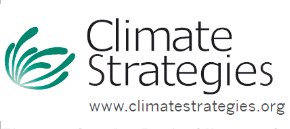
In December, negotiators will converge on Paris to forge a new international climate change agreement for 2020 and beyond. This policy brief is about one of the preconditions for a success at Paris: a breakthrough on climate finance, or, to be more precise, on how earmarked (sub-) national contributions to support developing countries could be part of the ‘Paris Climate Compact’ proposed in the recent report on Mobilizing Climate Finance commissioned by the French Presidency.
The finance breakthrough required for a Paris success will not come in the form of a new fund, or the adoption of a new global finance target/pathway. It may not even be part of the international climate negotiations. If anything, it may be that a significant number of developed country governments, national or sub-national decide to contribute to the Paris Climate Compact by adopting domestic instruments that enhance the predictability/automaticity of their support by earmarking of certain innovative domestic funding sources for the support of climate change efforts in particularly vulnerable developing countries.
The most straightforward way of doing this would be to follow the CDM share of proceeds for adaptation – which was crucial in building sufficient G77 support for the CDM – by setting aside two percent of the revenue of carbon instruments (emission trading schemes, carbon taxes) in solidarity with the poorest and most vulnerable countries, thereby establishing a voluntary ‘Development Gold Standard’ for such instruments.
(This Climate Strategies Policy Brief is based on the OCP/ecbi Think Piece The Paris Predictability Problem: What to do about climate finance for the 2020 climate agreement?)
